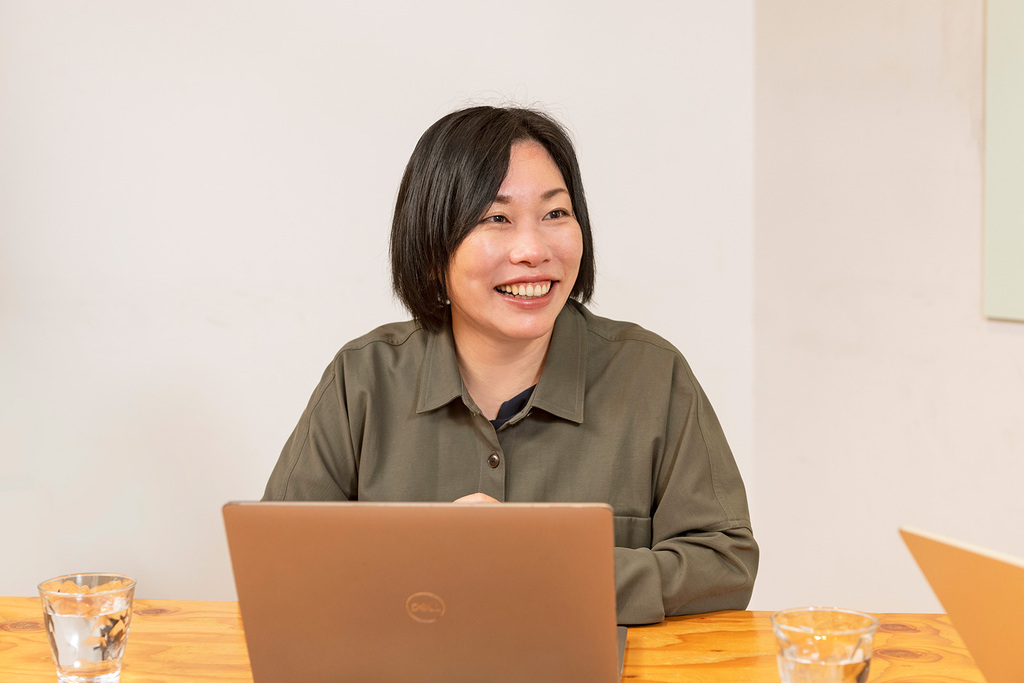Note: This website was automatically translated, so some terms or nuances may not be completely accurate.
Why is a Gen Z Co-Creation Solution Effective for Sustainability Promotion? (Part 2)
As environmental and human rights awareness grows, advancing sustainability has become an unavoidable management challenge for all companies. Dentsu Inc. has launched " REVERSE CONSULTING for SUSTAINABILITY," a service that drives corporate sustainability in collaboration with Generation Z, often called sustainability natives. Discussing key points for co-creation with Generation Z are: Shota Hisashi, CEO of NEW STANDARD Inc., which disseminates Generation Z trends; Yuta Matsuzaki, who established the Digital Native Room at Dentsu Digital Inc. (Dentsu Inc.); and Rie Tanaka, Director of the Sustainability Consulting Office at Dentsu Inc. and a Dentsu Team SDGs Consultant.
Part 1 introduced the service overview and the relationship between Generation Z and sustainability. This Part 2 covers case studies and highlights key points for co-creation with Generation Z.
The "Explicit Knowledge" Needed for Reverse Mentoring

Connecting new contexts to foster a sense of ownership

A Customer Journey That Goes Beyond "Purchase"


Mechanisms for gathering Gen Z opinions are vital for a company's own sustainability. This requires management efforts to transform tacit knowledge—often a bottleneck—into explicit knowledge. The key lies in gathering individual perspectives and adopting a collective impact mindset where everyone works toward solutions together. Furthermore, sustainable ventures co-created with Generation Z must reframe existing contexts. Consumption should be seen not as the goal, but as one process, with the focus on satisfaction shifting toward the subsequent lifestyle and connections. These were the topics discussed among the three of us. How did our readers feel about them?
"REVERSE CONSULTING for SUSTAINABILITY" is a consulting solution that reframes existing frameworks through Generation Z's perspective to transform sustainability initiatives into opportunities for business strategy. It turns future generations' negatives into positives and rebuilds businesses to ensure these efforts translate into revenue.
※1 Charity T-shirt Project "PEACE FOR ALL" Video Content ① (by Remi-tan)
※2 Charity T-shirt Project "PEACE FOR ALL" Video Content ② (Myu)
※3 Charity T-shirt Project "PEACE FOR ALL" Video Content ③ (Remi-tan)
The information published at this time is as follows.
Was this article helpful?
Newsletter registration is here
We select and publish important news every day
For inquiries about this article
Author

Naotaro Hisashi
NEW STANDARD Co., Ltd.
President and CEO
Born in 1984. Studied abroad in the U.S. after graduating junior high school. Graduated high school early at age 16 and started a business. Upon returning to Japan, joined DELL at age 19 and became the top salesperson in the corporate sales department at age 20. After leaving the company, engaged in social business in Miyazaki Prefecture. Founded TABILABO in 2014, leading organizational development for entities like Business Design&Brand Studio, while also working as a creative director on business development and client projects. In 2019, he spearheaded the company name change to NEW STANDARD and its CI rebranding.

Yuta Matsuzaki
Dentsu Inc.
First Integrated Solutions Bureau
Planner
Born in 1992. While in school, he conducted research in neuroscience while studying social innovation. He was involved in designing lessons for junior high, high school, and university students at an education-focused NPO, establishing educational facilities in collaboration with local governments, launching a medical-related general incorporated association, and organizing conferences on social issues. Joined Dentsu Inc. in 2016. Engaged in end-to-end marketing/brand strategy, encompassing promotion, service design, and UX/UI design. Primary industries handled include automotive, beverages, theme parks, IT, and NPOs. Founding member of the cross-functional internal organization "Dentsu Japanimation Studio" (2018). Researcher at Keio University SFC Research Institute.

Rie Tanaka
Dentsu Inc.
Sustainability Consulting Office
Director
Assumed current position in 2023. Responsible for talent development and organizational development within the organization, as well as sustainability branding, global research, and circular economy business promotion. After working at a telecommunications company, joined Dentsu Inc. and established multiple labs as a principal researcher in consumer behavior studies. Subsequently, helped launch Dentsu Digital Inc. and was seconded for two and a half years to the data science department of a consumer goods manufacturer to drive DX. After returning to Dentsu Inc., he worked in global business for two and a half years and was seconded to establish the Dentsu Group Sustainability Promotion Office in 2022, and was involved in establishing his current department the following year. Executive Coordinator, Organization for Advanced Science and Social Innovation, Kanazawa University Certified NPO Service Grant Partner Certified facilitator of LEGO®SERIOUS PLAY® method and materials



